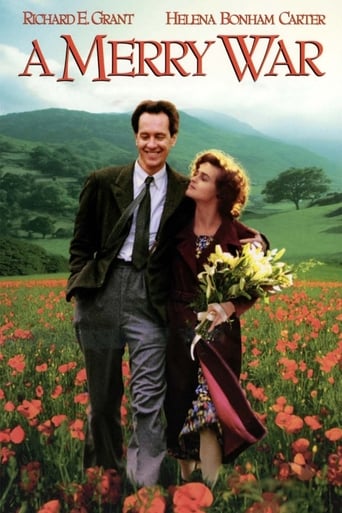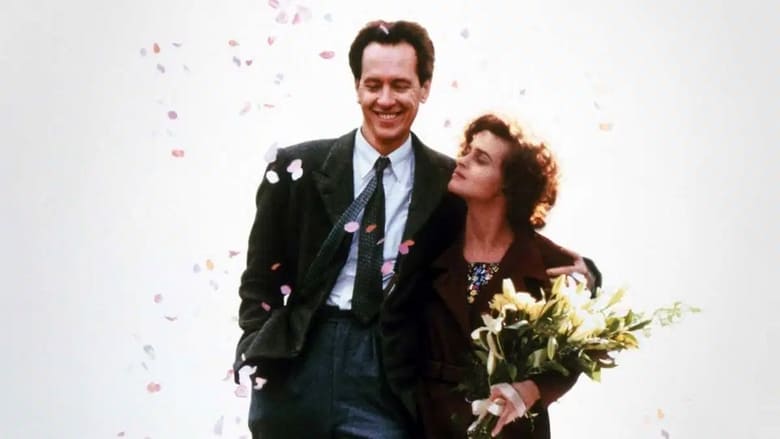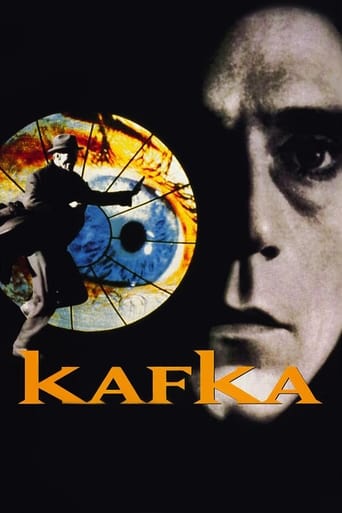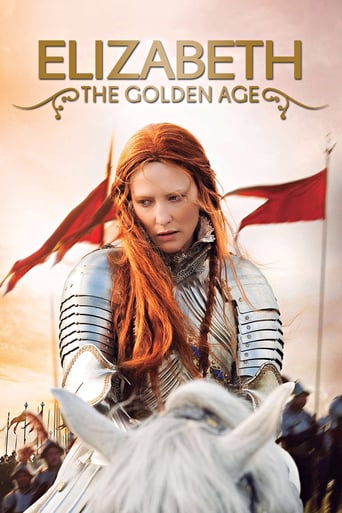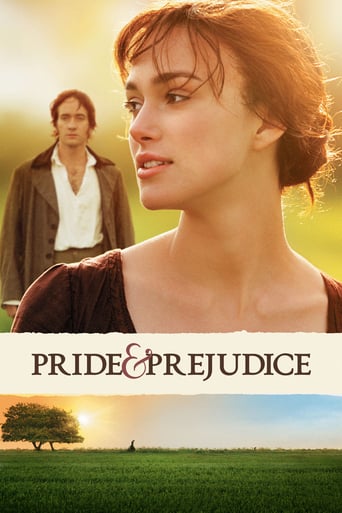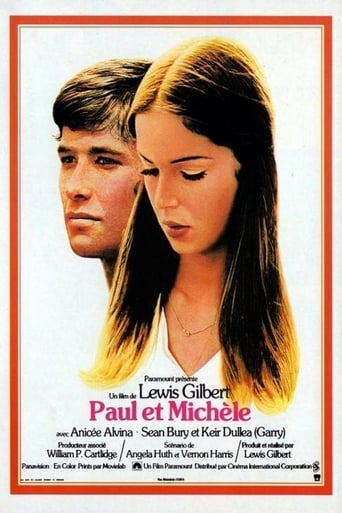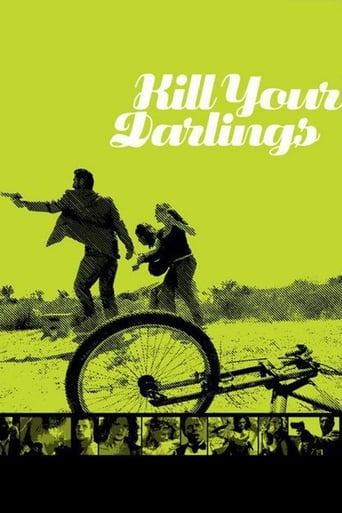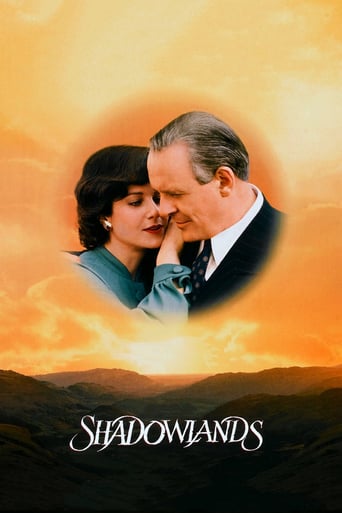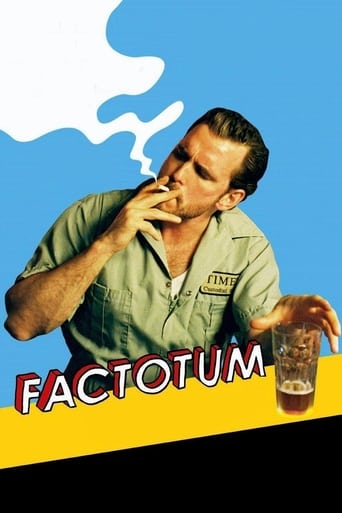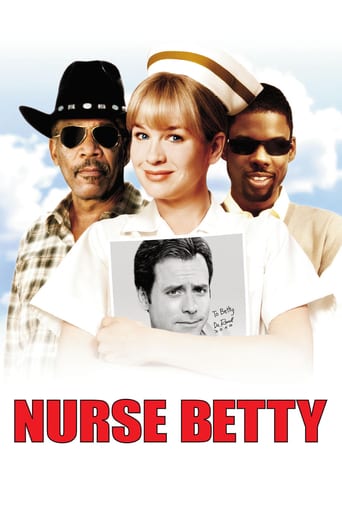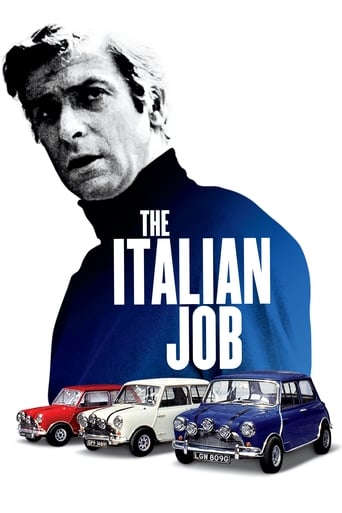Keep the Aspidistra Flying (1997)
Gordon Comstock is a copywriter at an ad agency, and his girlfriend Rosemary is a designer. Gordon believes he is a genius, a marvelous poet and quits the ad agency, trying to live on his poems, but poverty soon comes to him.
Watch Trailer
Cast


Similar titles
Reviews
Gordon Comstock is an aspiring poet and a successful advertising copywriter in 1930s London. He is good at his job and earns a decent middle-class income, but is dissatisfied with what he sees as a materialistic lifestyle and quits the firm to concentrate on writing poetry. He finds, however, that he cannot make a living from poetry alone, is forced to take a much less well-paid job working in a bookshop and spirals down into poverty. About the only thing which saves him from complete destitution is his ability to exploit the generosity of his wealthy publisher Ravelston, of his long-suffering girlfriend Rosemary and of his equally long-suffering sister Julia. And then something happens to shock Comstock out of his nostalgie de la boue.The film was based on George Orwell's novel of the same name. Orwell's title, playing on the Labour Party anthem "The Red Flag" with its promise to "keep the red flag flying here", refers to the aspidistra, a type of house-plant popular in the late nineteenth century which by the 1930s had become associated with a sort of shabby-genteel lower-middle-class respectability. (Orwell's contemporary H E Bates was to use the symbol of the aspidistra in the same way in his "An Aspidistra in Babylon"). For some reason the film was released in the United States under the meaningless title "A Merry War" which may have misled some viewers into thinking it was a wartime movie. (It isn't; Orwell's book was written before war broke out). About the only "war" involved is Comstock metaphorical war against middle-class values and the worship of the "money-god", and there is little that is merry about this particular conflict.When I first saw "Keep the Aspidistra Flying" in the cinema in 1997, I enjoyed it a lot more than I did when I watched it again recently. The reason is, almost entirely, that I have now read Orwell's book, something I had not done so in 1997. I can therefore understand some of the criticisms which were made of it at the time. Orwell's social satire is more trenchant than anything which appears in this film, and his depictions of poverty more unsparing than the prettified, sentimentalised version of working-class life which we see here. Orwell's Comstock (who may have been partly a self-portrait) certainly has his perverse, self-destructive side, but we also feel the sincerity, and at least to some extent the justice, of his criticism of middle-class society and its money-worship. In the film, Comstock's protests against materialism never seem anything more than perverse, self-indulgent and quixotic.It is a pity that the film was not closer in spirit to Orwell's novel, because Richard E. Grant would in many ways have been an ideal choice to play Gordon Comstock as Orwell envisaged him. Indeed, he is not bad in the film which we actually have, but could have been far better in a better film. Other good contributions come from Helena Bonham Carter as Rosemary, sweet and pretty without being too sexy, and from Julian Wadham as Ravelston, a wealthy champagne socialist who tries to assuage his guilty conscience about his wealth by fretting about the plight of the unemployed in Middlesbrough, even though he is not sure where Middlesbrough actually is. (In the novel Ravelston had the first name Philip; here for some reason it is changed to Conrad). Ravelston's girlfriend Hermione also claims to be a socialist, although in her case that claim is somewhat weakened by her insistence that "poor people smell". There are also good cameos from John Clegg as the eccentric Scottish bookshop-owner McKechnie and Barbara Leigh-Hunt as Comstock's landlady Mrs. Wisbeach, the aspidistra-wielding incarnation of everything he dislikes most about the middle classes. Overall, in fact, the film is not a bad one. I just felt it represents a missed opportunity. 7/10
Mainstreams cinema's greatest travesty is to iron everything to the prejudices and the nostrums of its audience. This movie represents the worst example of that deceit. While it is resembles the Orwell book – mostly – it dissembles to contrive a vapid story of a self-important egotist who settles for the great sweep of conventional life.Whether Comstock is a sympathetic or not is not material; he is a mostly an odious bore who believes he is a some sort of agnostic St Francis, but his characterization serves a purpose, which Orwell had a theme in his works. Here that is all dissolved into an irrelevant tale of a martinet who sees himself in the same company as great writers. The production satisfies in the genre of a BBC series of a 'big book' from the English canon. The design is present, as are the actors, thought the photography is bland and lit too similarly. Not to dark; not too bright; it's managed to ensure it is nice enough for an audience that last saw deep contrast at least thirty years previously.The real signature that this film is offensive is that awful song by the maestro of Wombles music. The utterly cretinous lyrics, the simpering idiocy of the music is enough to assure anyone that the filmmakers had not the same impetus in telling this story as the original author had in writing it.
I have no idea why the US and New Zealand versions of this movie were retitled 'A Merry War' - it's not set during wartime, and it's not especially merry. George Orwell's original novel is far from the greatest work of that great writer, but it's a sardonic and gritty look at bohemian poverty. The movie is much the same. Richard E. Grant does a fine job as the chronically self-defeating anti-hero, a character who more or less defines the phrase "his own worst enemy" - Gordon Comstock is one of those characters who basically needs a good smack in the mouth, but he never actually gets one. Helena Bonham-Carter does some quietly expert sweeping-up as Rosemary, Gordon's girlfriend, one of Orwell's less boring female characters. Julian Wadham is fine as Gordon's affluent editor friend Ravelston. The film never really gets to the bottom of Gordon's puritanical hatred of money and success, but it's not screenwriter Alan Plater's fault, because neither does the book. All in all, an entertaining piece of guardedly feel-good period drama.
I haven't read the Orwell novel, so I don't know if it is true to the story. I found this movie entertaining, however. A very promising advertising drafter/marketer decides to turn down a promotion and opts to be a poet. Richard Grant's Comstock is reminiscent of many idealists, who think that one should pursue their dreams no matter how unrealistic they are. Comstock hopes to escape his hopelessly middle-to-upper class World, where the apidistra plant represents the horrible repressiveness of this environment. Rosemary (Helena Bonham Carter) plays an anti-romantic woman, which is refreshing. In the Victorian novels the woman falls for men of little promise unconditionally. In this story, she leaves him for a time, believing that he has become too ridiculous. Comstock, however, finds himself in a working class neighborhood, working at a lowly bookstore. He is entranced by the "free spiritedness" of the working class. There are no strict rules to abide by, and people are more honest. However, a painful lesson in poverty convinces Comstock to go back and reclaim his old job. Comstock has found his peace with the World, and is happy to be part of the middle class World. I found this very hopeful, in our era of the declining middle class. The movie made clear that in England, the middle class educated feel very isolated and alienated. It was an interesting movie.

